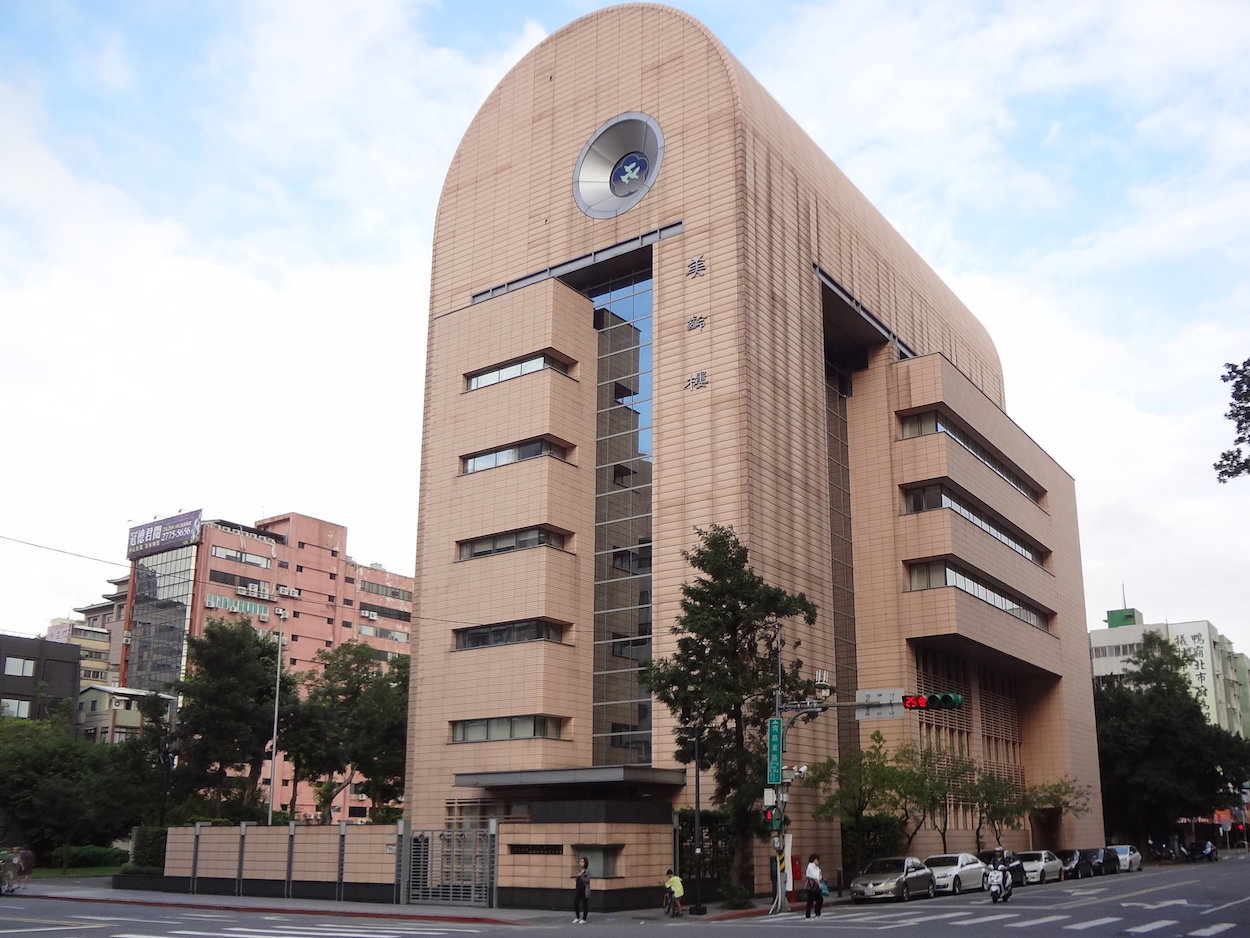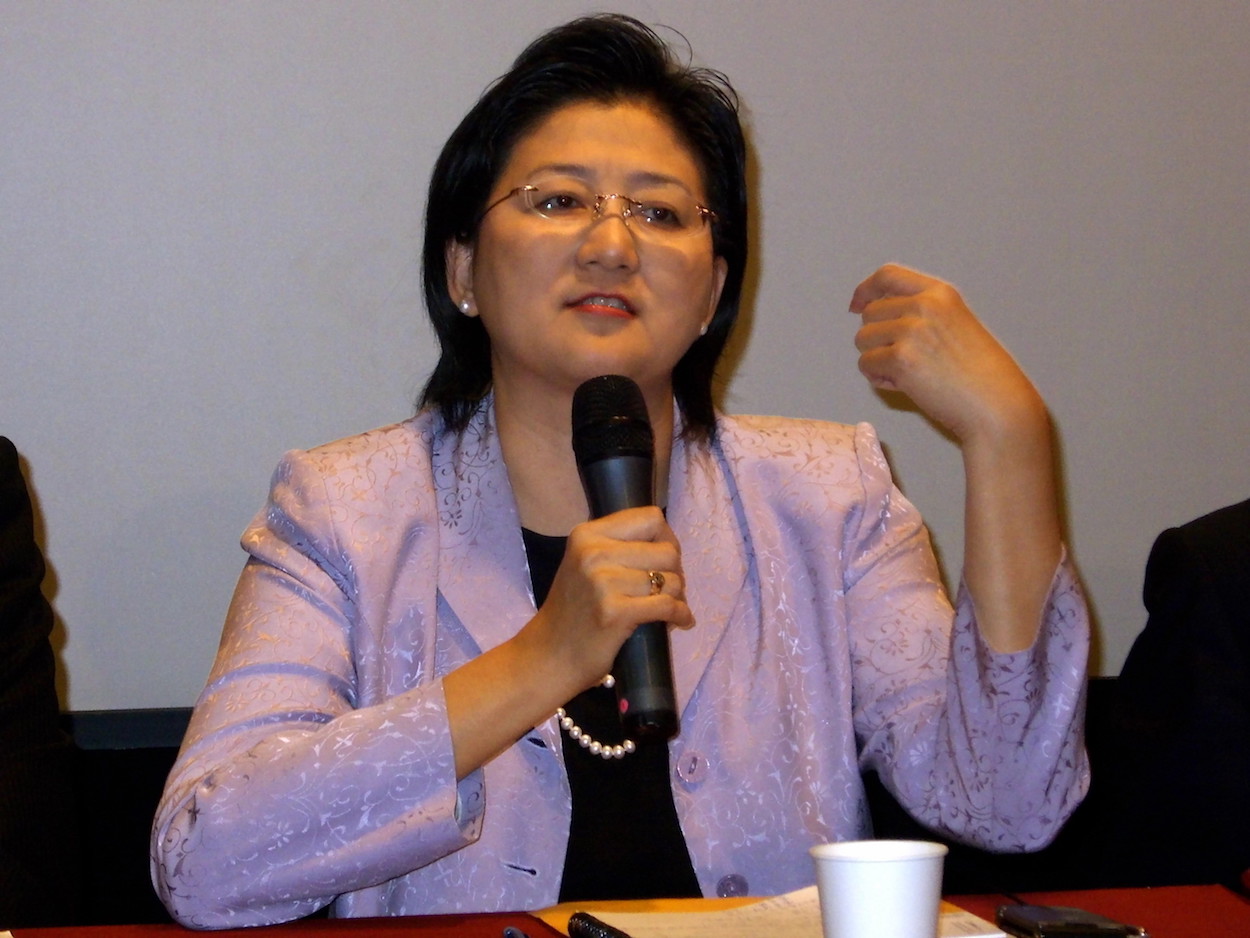by Brian Hioe
語言:
English
Photo Credit: Presidential Office/Flickr/CC
THE CONVOLUTED SAGA of the Chinese Women’s League continues, with reports that the organization has decided to transition into a political party in order to maintain the organization.
Transitioning to a political party would be an ironic fate for the Chinese Women’s League, which was ruled to be a KMT-affiliated party organization in February 2018. Namely, the Chinese Women’s League was originally an organization founded by the KMT as a means of mobilizing women as political supporters. Founded as the Chinese Women’s Anti-Communist League in 1950 by Soong Mei-ling, also known as Madame Chiang Kai-Shek, the organization conducted fundraising on behalf of the ROC government and “entertained troops to boost morale,” given the gendered nature of the organization.
 Chinese Women’s League headquarters. Photo credit: Solomon203/WikiCommons/CC
Chinese Women’s League headquarters. Photo credit: Solomon203/WikiCommons/CC
During this period in time, the Chinese Women’s League was directly funded by the ROC government, with funding coming from the Military Benefit Tax placed on all American goods imported into Taiwan between 1955 and 1989. Notably, the Chinese Women’s League continued to benefit from close ties to the ROC state even into the post-authoritarian period. It was found in October 2017 that over fifty employees of the Chinese Women’s League were receiving pensions normally reserved for public servants.
Indeed, the total assets of the Chinese Women’s League were originally valued at NTD 38.1 billion, larger than the total assets the KMT reported that it possessed in 2017, at NTD 18.1 billion. The Chinese Women’s League was accused of being an ostensibly private organization that the KMT funneled its party assets into as a means of avoiding scrutiny by DPP governments into what assets the KMT illicitly retains from land and property seizures conducted during the authoritarian period.
The Executive Yuan’s Ill-gotten Party Assets Settlement Committee ordered the Chinese Women’s League’s assets frozen last year after ruling that the league was a KMT-affiliated party organization, then ordered the confiscation of NTD 38.8 billion, which would leave the league with 246 million NTD. Nevertheless, the Chinese Women’s League currently has a pending legal challenge against the Ill-gotten Party Assets Settlement Committee, with Supreme Administrative Court ruling that the assets would not be seized until it arrives at a decision. Yet the judiciary has actually sided with the Chinese Women’s League before, in rulings that some of the organization’s assets would have to be unfrozen in March last year. The Chinese Women’s League has also attempted to accuse the DPP of, strangely enough, being motivated by misogyny in its investigation into the assets of the league.
As such, it would be ironic if after its origins as a party-state organization, then likely serving as a means for the KMT to channel party resources into an ostensibly private organization, the next step for the Chinese Women’s League is to become a political party in itself. This would either be with the aim of attempting to retain party resources or at least simply ensuring that the organization is not forced to dissolve.
 Photo credit: Joanna Lei
Photo credit: Joanna Lei
It is thought that Joanna Lei, the current chair of the Chinese Women’s League and a member of the pan-Blue-leaning Christian Faith and Hope League—a major force against efforts to legalize gay marriage in Taiwan—will be the head of the party. Howver, due to lack of coordination between the Chinese Women’s League headquarters, which retains most of the organization’s resources, and branch organizations, this may lead to the splintering of the organization. Though the Chinese Women’s League may attempt to keep the organization together through cash pay-offs to branch organizations, the Chinese Women’s League may fragment following a challenge to Lei’s leadership.
Likewise, this transition would have to be approved by the Ministry of the Interior, as the Chinese Women’s League seems to be aim to use provisions in the Civil Associations Act which specify that political organizations founded prior to 2017 amendments to the act must transition into a political party by December 2019 or dissolve. If such a transition were to not be approved, it is likely that the Chinese Women’s League would allege political persecution of pan-Blue political actors by the DPP. However, in this respect, the Chinese Women’s League simply proves another example of how difficult it is to handle efforts at transitional justice in Taiwan decades after democratization, with remnants of the former authoritarian party-state citing democracy as a means to preserve the vestiges of their authority.

